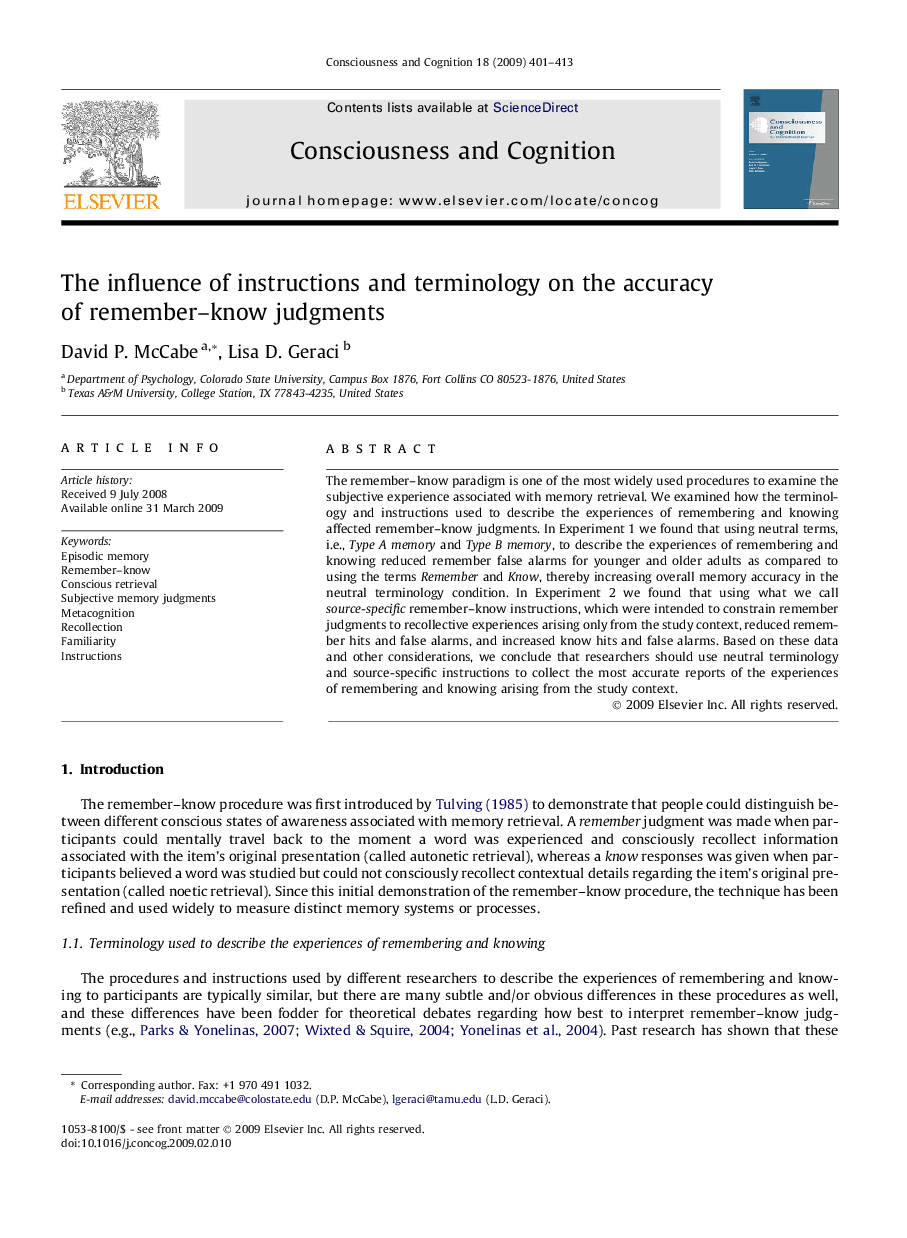| Article ID | Journal | Published Year | Pages | File Type |
|---|---|---|---|---|
| 927742 | Consciousness and Cognition | 2009 | 13 Pages |
The remember–know paradigm is one of the most widely used procedures to examine the subjective experience associated with memory retrieval. We examined how the terminology and instructions used to describe the experiences of remembering and knowing affected remember–know judgments. In Experiment 1 we found that using neutral terms, i.e., Type A memory and Type B memory, to describe the experiences of remembering and knowing reduced remember false alarms for younger and older adults as compared to using the terms Remember and Know, thereby increasing overall memory accuracy in the neutral terminology condition. In Experiment 2 we found that using what we call source-specific remember–know instructions, which were intended to constrain remember judgments to recollective experiences arising only from the study context, reduced remember hits and false alarms, and increased know hits and false alarms. Based on these data and other considerations, we conclude that researchers should use neutral terminology and source-specific instructions to collect the most accurate reports of the experiences of remembering and knowing arising from the study context.
